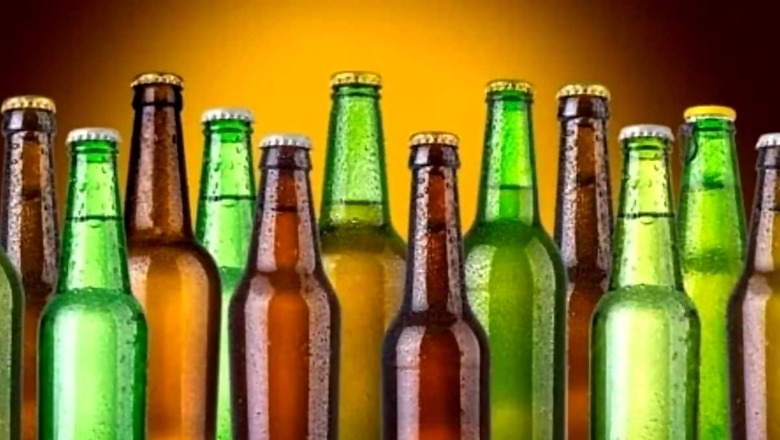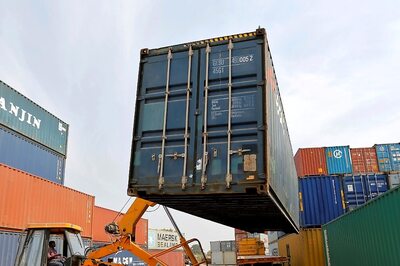
views
Many claim that after having one or two drinks, they can communicate in a foreign language better. Who knows, though? Some people even believe that drinking alcohol empowers them to dance like popstars. But we do know that the Dutch courage effect does exist in certain cases. However, does drinking actually improve one’s ability to speak a foreign language? Or merely give the impression that you speak it more fluently? The primary reason one seems to use a foreign language more fluently when intoxicated is because the person tends to let go of his or her fears and concerns. Taking inspiration from this, a liquor store in Madhya Pradesh created the finest advertisement.
In Burhanpur, Madhya Pradesh, a poster with the words “Din dahade English bolna seekhe (Learn to speak English fluently in broad daylight)” is placed next to a liquor store. The poster points an arrow towards the store that reads, “Theka” (Liquor store).
As India Today reporters went to the liquor store to find out who placed the controversial advertisement, the employees maintained they had no information. A local college student, Siddharth Kumar, took issue with the ad, saying it will negatively affect students. Kumar told the news portal that these kinds of ads are going to have a negative influence on kids and young people.
Speaking for others as well, Kumar stated that they wanted authorities to track down the individual who erected the poster and take decisive action against them. The post incorrectly suggests that drinking alcohol would help someone learn to speak English. Furthermore, he noted that a quick look at the banner appears to be an ad for a spoken English instruction facility.
District Collector Bhavya Mittal swiftly gave the excise department instructions to take down the ad and pursue legal action against its posterers in response to the outcry from the community, the report added.
In a 2017 research that was published in the Journal of Psychopharmacology, 50 native German speakers who had only recently taken up Dutch were randomly assigned to either a nonalcoholic beverage or a modest amount of alcohol. The experiment was followed by a standardised conversation in Dutch between the participants and a blinded investigator.
The conversation was recorded on audio, and two native Dutch speakers utterly unaware of the experimental setup judged the participants’ foreign language proficiency thereafter (observer-rating). When comparing the observer judgements of the Dutch language, particularly pronunciation, the alcohol-consuming participants performed noticeably better than the non-alcoholic ones.
However, the study was just for experimental purposes and science still has a lot to prove. So, before you go for a bottle of liquor, consider other options for improving your language skills as there are significant drawbacks to this tactic. One is that, even though you will be more fluid and self-assured, you will probably also make a lot more mistakes in grammar and pronunciation. More importantly, you could even develop negative habits that you may carry with you when you sober up.




















Comments
0 comment